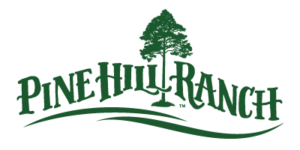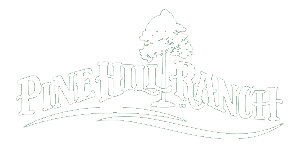Horseback riding for adults is a beneficial sport for both mental and physical health. You can learn to ride at any age. Physical fitness and a passion for horseback riding are all that’s required.
You could be thinking about taking up horseback riding as a hobby or wondering if this is the sport for your youngster. Or perhaps you might already be a horseback rider and want your companion to join you. Luckily, The Pine Hill Ranch can help!
Physical benefits

Provide core and leg exercises
Horseback riding is a great way to stay in shape. Even while it appears that the horse is performing practically all of the labor while the rider relaxes on its back, this is not the case. A horse rider must direct these majestic and muscular animals, and everyone who has tried riding a horse knows how physically difficult it is merely to stay on horseback. According to a study conducted by Brighton in 2011, horseback riding can be classified as moderate-intensity activity.
Because the rider must use his entire body to lead the horse forwards, this helps to activate several muscles. The majority of the work is done by the core and leg muscles. The core muscles are primarily responsible for maintaining good posture while riding a horse. The rider’s balance depends on their stance. Leg muscle activation is visible since the rider communicates with the horse through his legs. Leg muscle strength is also crucial for gripping the saddle.
Cardio training
An intense horseback riding session will make your heart race. The horse’s stride largely determines the amount of effort required by the rider. Riding a beginner horse with a quick trot demands more strength than riding an advanced-level horse.
Improved posture
For an equestrian, upright, perfect posture with a neutral spine is excellent for good balance on horseback. This position is critical for being positioned correctly in the saddle, which is required to stay on horseback and direct the horse; nevertheless, improper posture can lead to injury like with any sport. Neck and upper back strains are typical ailments that occur as a result of poor posture. Back pain can develop from long periods of horseback riding with poor posture.
On the other hand, the rider’s bad posture causes the horse’s stance to change. Horses are expensive creatures that require costly care; thus, any injury to one results in a significant financial loss. As a result, a good rider’s posture is also emphasized in horse riding training. Both on and off the horse, the upper body, is held in an erect position. A healthy posture is essential to the sport as well as to your appearance.
Better reflexes
The rider should be mentally prepared to react to the unexpected turns that horses can make. This mindset is only found in regular ridings. Even the most well-trained horses can catch you off guard with a surprising move, forcing you to react with reason rather than panic. You’ll have to make quick decisions to get the horse under your control and move forwards. As a result, there will be insufficient time to ponder and make decisions using the brain. In this circumstance, your instincts and nerve reflexes will naturally react. You will be able to build superior reflexes if you ride horses regularly.
Mental benefits

Practicing good non-verbal communicating skills
Building a good relationship with a horse, like any other relationship, takes time. The horse must realize that you mean no harm, and confidence must be established for you to ride that horse at its best. When you cuddle their neck, horses show their compassion by gently blowing warm air on your neck. The mighty, majestic, yet innocent animals’ affectionate reactions will brighten your day. You may develop your link with the horse by giving it tiny treats, grooming it regularly, and letting it know that you appreciate it.
Because horseback riding is a group sport, including you and your horse, you must communicate well with him. A successful riding necessitates the horse’s complete cooperation. But the trick is to express your needs nonverbally. It is critical that you and the horse have a common understanding for them to follow your directions. The rider should be able to deduce the horse’s needs simply by watching how it behaves.
The rider must “know” his horse, whether thirsty or hungry, find the atmosphere too hot or has an ailment that is not readily evident to others. As a result, when it comes to nonverbal communication skills, an equestrian has a distinct advantage.
Learning patience
When it comes to horseback riding, patience is a skill that you may develop over your career. Unfortunately, most equestrians are lacking in this area. You and the horse will need to work for several weeks to master a single new trick, and even then, you may not have much success. So it’s understandable if you lose a little patience when training. The first thing you should realize is that your horse is a living being. It takes more time to learn, and you’ll need to put in a lot of effort and time to get it to move the way you want it to.
Because learning a new skill takes time, your progress may not always be visible. Getting aid from your instructor or keeping regular notes is an excellent approach to tracking your progress.
Contact your veterinarian and follow his recommendations if you see a major slowing in the horse’s skill development. Otherwise, it would help if you continued to practice with your horse regularly.
Contribute to stress management and improve your happiness
Any horse rider will tell you how good this sport is for lifting your spirits. In tests, horseback riding has been shown to help elevate serotonin levels (a chemical produced by the brain that improves mood) in more significant proportions than any other sport.
Spending time on the horseback or cleaning or grooming the horses regularly boosts your mood by keeping you physically busy and removing you from the distractions of the outside world. Because spending time with horses is something you enjoy, it lifts your spirits and reduces stress.
It helps to build self-confidence
The majority of individuals are terrified of horses, and any equestrian’s career begins in this manner. We are usually afraid of being tossed away or kicked. When we first start training, we are bound to have some minor mishaps.
However, learning from your mistakes and mastering the art of horseback riding will boost your self-confidence. You must leave your comfort zone and take risks to achieve this. You will become a talented equestrian with adequate training, which will undoubtedly boost your self-confidence.
Join us at The Pine Hill Ranch
While you are at The Pine Hill Ranch, you can learn how to listen to a horse’s body language and form a genuine bond. We will help you build a relationship through communication and useful exercises. Our main focuses will include safety, nurturing, and overall horse awareness and appreciation. We look forward to being part of your experience as you build a relationship with one of our extraordinary horses!
Call us today at (501) 366-8436 to schedule an appointment to come out to the ranch and see our amazing staff!

